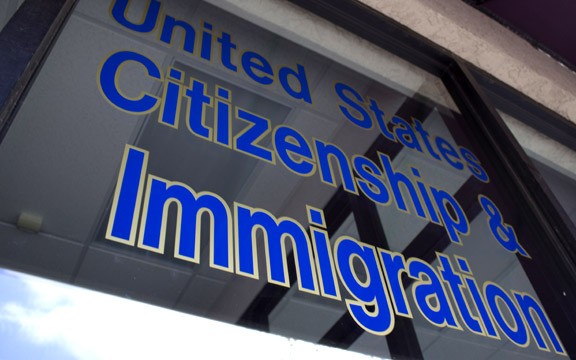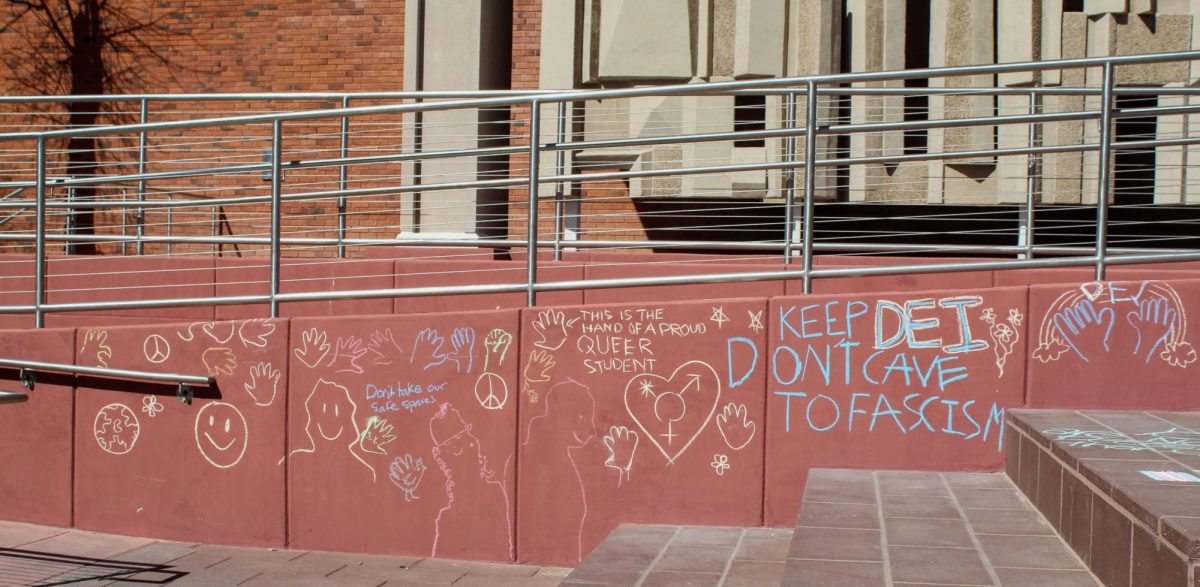University and community college leaders across Arizona have thrown their support behind lowering the cost of tuition for undocumented students, but offering in-state tuition to those students faces legal challenges created by state statutes.
Following the Pima Community College governing board’s vote to offer in-state tuition to undocumented students, the three university presidents also expressed their support in helping make tuition more affordable for students who arrived in the United States as children and who have lived in Arizona most of their lives.
According to research by the Pew Hispanic Center, up to 1.7 million people may qualify for protection from deportation and other public benefits under the Deferred Action for Childhood Arrivals program, an executive order issued by President Barack Obama in June 2012.
The program, which went into effect in August 2012, provides a two-year work permit to individuals younger than 30 years old and who were brought to the U.S. before they were 16. Applicants must have obtained a high school diploma or GED or be currently enrolled in school, among other requirements, to qualify for approval under DACA.
Governing boards’ decisions based on conflicting statutes
Despite PCC’s recent decision, the Arizona Board of Regents released a statement saying students who received deferred action status do not qualify for in-state tuition according to Arizona law.
The community college’s decision, however, referenced a different section of Arizona Revised Statutes and said the law allows those with deferred action status to receive certain benefits, including more affordable tuition, according to C.J. Karamargin, vice chancellor for public information and federal government relations at PCC.
In January, United States Citizenship and Immigration Services officially declared that individuals approved under DACA are considered “lawfully present” by the Department of Homeland Security.
Arizona grants “state or local public benefits” to “lawfully present” individuals, Karamargin said. These benefits are outlined in federal law and include loans, grants, licenses, unemployment and retirement, health and disability and postsecondary education benefits. PCC understands this section of the law to mean it is permissible to grant undocumented students in-state tuition once they qualify for deferred action, according to Karamargin.
“This is a decision that will allow us to fulfill our mission as an academic institution,” Karamargin said. “Our role is education, not border enforcement. There are departments of government, federal and state, who have that responsibility. Our responsibility is to make sure that the education we provide is accessible to as many people as possible.”
The board of regents has cited a different section of Arizona Revised Statutes that clearly states that only those who have lawful status can pay in-state tuition in Arizona.
Lawful status is different than lawful presence. Those who qualify for deferred action are lawfully present in the U.S., but do not have lawful status. Examples of lawful status include refugee status or permanent residency, according to the U.S. Citizenship and Immigration Services website.
Neither the community college nor the board seem to be breaking the law because the terms are unclearly defined, said Daniel Arellano, a second-year UA law student and member of the Latino Law Student Association.
“It depends on which statute you rely on, but I don’t think either is necessarily wrong or illegal,” Arellano added. “If Pima or Maricopa wants to rely on this statute and give them in-state tuition, you know, more power to them.”
Universities support affordable tuition
UA President Ann Weaver Hart issued a memo saying she supports making higher education more accessible to undocumented students. Presidents of the other two state universities have also voiced support for making education more affordable for undocumented students.
However, Sarah Harper, a spokeswoman for the regents, said the board would have to approve a formal proposal that doesn’t grant deferred action students in-state tuition, as that would go against Arizona law.
Hart said she looks forward to further discussing how to make tuition more affordable for undocumented students.
“It makes no sense to block access to that education when the whole state benefits from a more educated populace,” Hart said. “I think what you’re seeing is there are discussions about what the board might want to do. It’s not ominous in any way. It’s just where we are in the state right now.”
Rick Myers, regents chairman, said the board will be asked to look further into the possibility of making education more affordable for undocumented students while working with federal and state law.
“Once we gather all that information then we can decide as the regents whether or not there is a solution that would conceivably work here in Arizona,” Myers said. “The regents feel that more people that have additional education here in Arizona means more people contributing even more to our economy.”
Even if a lower tuition is set for undocumented students, the law states these students can’t receive federal or state financial aid. While deferred action changed the situation for these students, no federal law has been made to help students afford higher education, Myers added.
“I think we all hope that the federal government would take this on in a constructive way as soon as possible,” Myers said. “All of us [each state] are having to work through this by understanding our state laws.”









